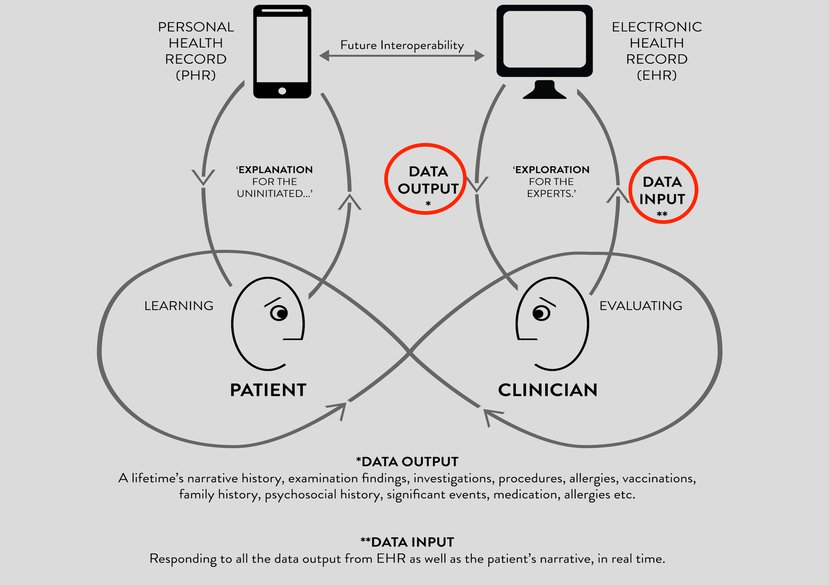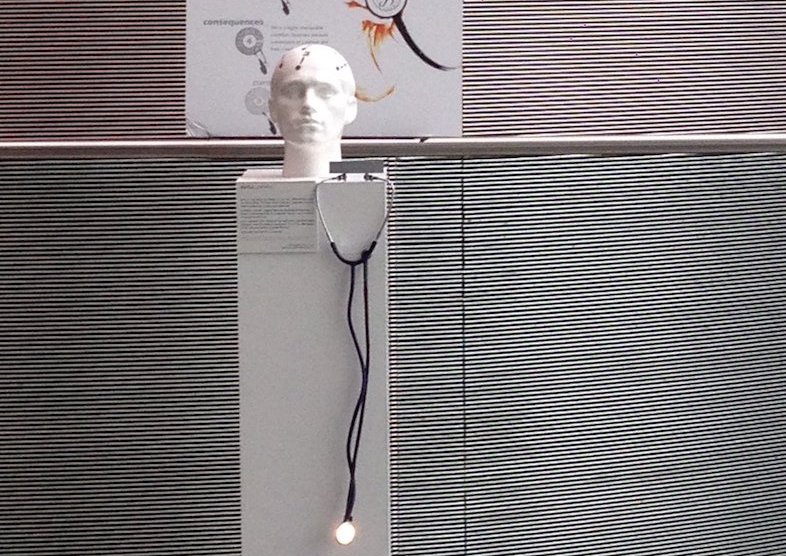
Visualising a patient’s data: a clinical epistemic approach that supports clinicians in their practice
The Electronic Health Record (EHR) was developed in the 1970s and rolled out more widely since the 1990s. It is the keystone software system supporting a health data network that—in an ideal world—connects patient data with all stakeholders: patient, professional and organisational.
The core property inherent to the digital format—that data are infinitely shareable without degradation—has expanded the scope of the EHR almost unimaginably beyond that of its paper record predecessor. But with this comes the unavoidable consequence that all data - ‘good’ and ‘bad’, ‘clean’ or ‘dirty’ - are shared throughout the ecosystem, infinitely and without degradation. Errors get amplified, omissions become voids and duplication reduces clarity.
The challenge of communicating trans-disciplinary knowledge around 'how clinicians think' - loosely defined as clinical reasoning - defines the purpose, scope and methodological approach of my research.
My research at the RCA explores the critical role of the EHR on the clinician-patient consultation, arguing for a radical re-envisioning of EHR interface design that holds true to the messy, unfolding and unpredictable dynamic that reflects the reality of clinical medicine.
Taking an epistemic approach, where knowledge of a domain is inherent within the structure of visualisation, and drawing on cognitive science, usability, visualisation, visual analytics and interactivity, I explore what tacit and experiential knowledge can be extracted from clinician-designed EHR prototyping. In other words: what can we learn about how clinicians think by examining their own design artefacts?
I see EHR design not as a ‘wicked problem’ but as a talented design collective, waiting for deeper strategic collaboration with each other, clinicians and patients.
Key details
School, Centre or Area
Area of expertise
Supervisors
Funding
-
Ted Powers scholarship
Personal links
Gallery
More about David
Biography
Dr Dave Pao is a practising doctor in the NHS and design researcher.
His research at the RCA explores the critical role of the electronic health record (EHR) on the clinician-patient consultation, arguing for a radical re-envisioning of EHR design that holds true to the messy, unfolding and unpredictable dynamic that is the hallmark of clinical medicine.
Drawing on an epistemic approach that includes cognitive science, usability, visualisation, visual analytics and interactivity, he explores what tacit and experiential knowledge can be extracted from clinician-designed EHR prototypes. In other words, what can we learn about how clinicians think by examining their own design artefacts.
He sees EHR design not as a ‘wicked problem’ but as a talented design collective, waiting for deeper strategic collaboration with clinician users.
Degrees
Doctor of Medicine (University of London); Member of the Royal College of Physicians UK (MRCP); MD in clinical virology (University College London)
Funding
Ted Powers scholarship

